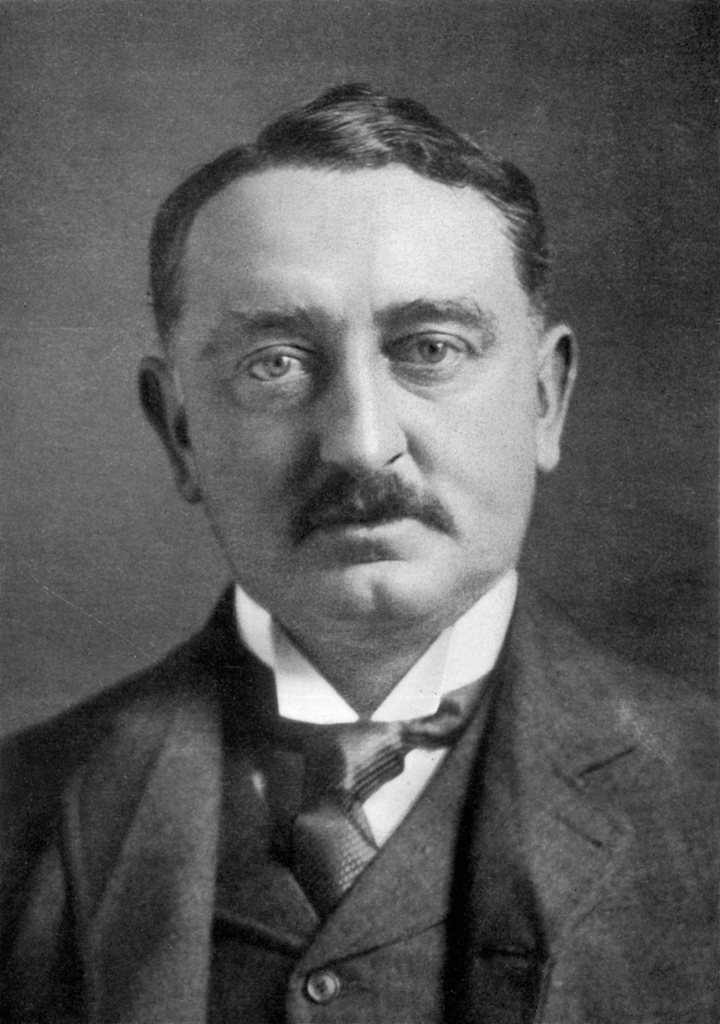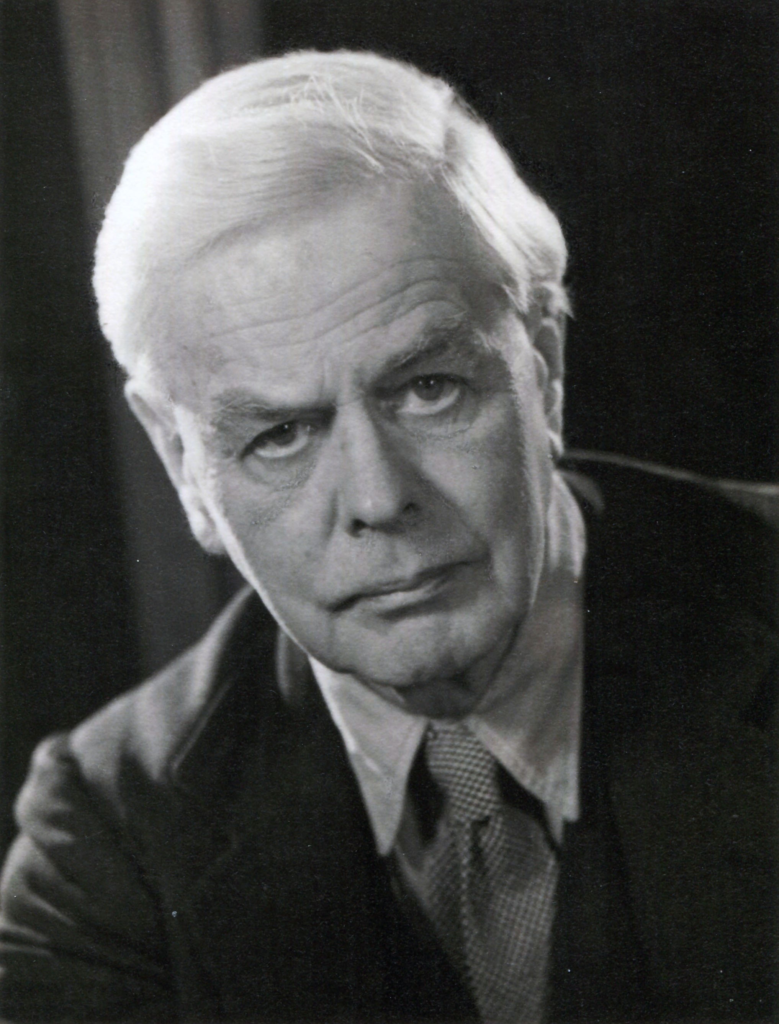The Gods of Eden – Chapter 32: Funny Money Goes International

IN HIS BOOK, Tragedy and Hope, Dr. Quigley divides the history of “capitalism” into several stages.
The third stage, which is described as the period from 1850 until 1931, is defined by Dr. Quigley as the stage of Financial Capitalism.
Dr. Quigley states:
This third stage of capitalism is of such overwhelming significance in the history of the twentieth century, and its ramifications and influences have been so subterranean and even occult, that we may be excused if we devote considerable attention to its organizations and methods.
Essentially what it did was to take the old disorganized and localized methods of handling money and credit and organize them into an integrated system, on an international basis, which worked with incredible and well-oiled facility for many decades. [1]
Dr. Quigley described the overall intent of the new integrated system:
… the powers of financial capitalism had another far-reaching aim, nothing less than to create a world system of financial control in private hands able to dominate the political system of each country and the economy of the world as a whole.
This system was to be controlled in a feudalist fashion by the central banks of the world acting in concert, by secret agreements arrived at in frequent private meetings and conferences.
The apex of this system was to be the Bank for International Settlements in Basel, Switzerland, a private bank owned and controlled by the world’s central banks which were themselves private corporations.
The BIS – Bank for International Settlements – Library of Rickandria
Each central bank sought to manipulate foreign exchanges, to influence the level of economic activity in the country, and to influence cooperative politicians by subsequent economic rewards in the business world. [2]
In the English-speaking world, the newly organized central banks exerted significant political influence through an organization they supported known as the Round Table.
The Round Table was a “think tank” designed to affect the foreign policy actions of governments.
The Round Table was founded by an Englishman named Cecil Rhodes (1853-1902).

[Cecil John Rhodes (/ˈsɛsəl ˈroʊdz/ SES-əl ROHDZ; 5 July 1853 – 26 March 1902) was an English mining magnate and politician in southern Africa who served as Prime Minister of the Cape Colony from 1890 to 1896. He and his British South Africa Company founded the southern African territory of Rhodesia (now Zimbabwe and Zambia), which the company named after him in 1895. He also devoted much effort to realizing his vision of a Cape to Cairo Railway through British territory. Rhodes set up the Rhodes Scholarship, which is funded by his estate.]
Rhodes had created a vast diamond and gold-mining operation in South Africa and in the two African nations named after him: Northern and Southern Rhodesia (today Zambia and Zimbabwe, respectively).
Rhodes, who was educated at Oxford, did the most of any Englishman to exploit the mineral resources of Africa and to make the southern African continent a vital part of the British Empire.
Rhodes was more than a man driven to make a personal fortune.
He was very concerned with the world and where it was headed, especially in regard to warfare.
Although he lived almost a century ago, he envisioned a day when weapons of great destruction could destroy human civilization.
His farsightedness inspired him to channel his considerable talents and personal fortune into building a world political system under which it would be impossible for a war of such magnitude to occur.
Rhodes intended to create a one-world government led by Britain.
The world government would be strong enough to stamp out any hostile actions by any group of people.
Rhodes also wanted to unify people by making English the universal language.
Is the English Language Really Reversed Hebrew? – Library of Rickandria
He sought to diminish nationalism and to increase awareness among people that they were part of a larger human community.
It was with these goals in mind that Rhodes established the Round Table.
A Short History of the Round Table – Library of Rickandria
In his last will, Rhodes also created the famous “Rhodes Scholarship”—a program still in operation today.
The Rhodes scholarship program is designed to promote feelings of universal citizenship based upon Anglo-Saxon traditions.
Rhodes’ heart was clearly on the right track.
If successful, he would have undone many of the harmful effects caused by purported Custodial actions and by the corrupted Brotherhood network.
A universal language would have undone the damaging effects described in the Tower of Babel story of dividing people into different language groups.
Promoting a sense of universal citizenship would help overcome the types of nationalism which help generate wars.
Something went wrong, however.
Rhodes committed the same error made by so many other humanitarians before him:
he thought that he could accomplish his goals through the channels of the corrupted Brotherhood network.
Rhodes therefore ended up creating institutions which promptly fell into the hands of those who would effectively use those institutions to oppress the human race.
The Round Table not only failed to do what Rhodes had intended, but its members later helped create two of the 20th century’s most heinous institutions: the concentration camp and the very thing that Rhodes had dedicated his life to preventing:
the atomic bomb.
Rhodes’ idea for the Round Table had begun in his early twenties.
At the age of 24, while a student at Oxford, Rhodes wrote his second will, which described his plans by bequeathing his estate for:
.. . the establishment, promotion and development of a Secret Society, the true aim and object whereof shall be the extension of British rule throughout the world… and finally the foundation of so great a power as to hereafter render wars impossible and promote the best interests of humanity. [3]
Rhodes’ secret society, the Round Table, was finally born in 1891.
It was patterned after Freemasonry with its “inner” and “outer” circles.
Rhodes’s inner circle was called the Circle of Initiates, and the outer was the Association of Helpers.
The organization’s name, the Round Table, was an allusion to King Arthur and his legendary round table.
By implication, all members of Rhodes’ Round Table were ”knights.”
It was inevitable that Rhodes’ success and political influence would bring him into contact with other “movers and shakers” of English society.
Among them, of course, were the major financiers of Britain. One of Rhodes’ chief supporters was the English banker, Lord Rothschild, head of the powerful Rothschild branch in England.
Lord Rothschild was listed as one of the proposed members for the RoundTable’s Circle of Initiates.
Another Rhodes associate was the influential English banker, Alfred Milner.

[Alfred Milner, 1st Viscount Milner, KG, GCB, GCMG, PC (23 March 1854 – 13 May 1925) was a British statesman and colonial administrator who played a very important role in the formulation of British foreign and domestic policy between the mid-1890s and early 1920s. From December 1916 to November 1918, he was one of the most important members of Prime Minister David Lloyd George’s War cabinet.]
After Rhodes died in 1902, the Round Table gained increased support from members of the international banking community.
They saw in the Round Table a way to exert their influence over governments in the British Commonwealth and elsewhere.
In the United States, for example, according to Dr. Quigley:
The chief backbone of this [Round Table] organization grew up along the already existing financial cooperation running from the Morgan Bank in New York to a group of international financiers led by the Lazard Brothers. [4]
From 1925 onward, major contributions to the Round Table came from wealthy individuals, foundations, and companies associated with the international banking fraternity.
They included the Carnegie United Kingdom Trust, organizations associated with J. P. Morgan, and the Rockefeller and Whitney families.
Rockefeller Bloodline – Library of Rickandria
After World War I, the Round Table underwent a period of expansion during which many subgroups were created.
The man responsible for getting many of the subgroups started was Lionel Curtis.

[Lionel George Curtis CH (1872–1955) was a British internationalist and author. He was the inspiration for the foundation of Chatham House (The Royal Institute of International Affairs) as well as the US Council on Foreign Relations at the Paris Peace Conference in 1919. He was a leading member of Round Table movement. His writings and influence caused the evolution of the former British nations into the Commonwealth.]
In England and in each British dominion, Curtis established a local chapter (in Quigley’s words, a “front group”) of the Round Table called the Royal Institute of International Affairs.
In the United States, the Round Table “front group” was named the Council on Foreing Relations – CFR.
CFR: The Council on Foreign Relations – Library of Rickandria
Many Americans today are familiar with the New York-based Council on Foreign Relations.
The CFR is usually thought of as a “think tank” from which come a great many political appointees at the Federal level.
Under the Presidential administration of Ronald Reagan, for example, more than seventy administration members belonged to the Council, including a number of top cabinet members.
The CFR has dominated earlier Presidential administrations as well, and it dominates the present administration.
The chairman of the CFR for many years has been banker David Rockefeller, former chairman of the Chase Manhattan Bank.
Another Chase executive chaired the CFR before that.
The warning of Thomas Jefferson has come true.
Thomas Jefferson: Part One – Library of Rickandria
The banking fraternity has exercised a strong influence on American politics, notably in foreign affairs, and the Council on Foreign Relations is one channel through which it has done so.
Regrettably, that influence has helped to preserve inflation, debt and warfare as the status quo.
When Cecil Rhodes was alive, he gained considerable power in South Africa and served for a number of years as colonial governor there.
He had a unique and effective way of delegating power.
According to one of Rhodes’ closest friends, Dr. Jameson, Rhodes gave a great deal of autonomy to his trusted men.
Dr. Jameson once wrote:
Mr. Rhodes left the decision [on what to do in a situation] to the man on the spot, myself, who might be supposed to be the best judge of the conditions.
This is Mr. Rhodes’ way.
It is a pleasure to work with a man of his immense ability, and it doubles the pleasure when you find that, in the execution of his plans, he leaves all to you; although no doubt in the last instance of the Transvaal business he has suffered for this system, still in the long run, the system pays.
As long as you reach the end, he has in view he is not careful to lay down the means or methods you are to employ.
He leaves a man to himself, and that is why he gets the best work they are capable of out of all his men. [5]
This can be an effective style of leadership, except when the means used to achieve an end create their own problems.
Some of the methods used by Rhodes’ men did more long-term harm than immediate good.
In South Africa, for example, a struggle between Dutch settlers (the “Boers”) and the English erupted into the Boer War.
During that conflict, one of the British officers under Rhodes, Lord Kitchener, established concentration camps to hold captured Boers.
The camps were decreed by Kitchener on December 27, 1900, and over 117,000 Boers were eventually imprisoned within forty-six camps.
Conditions were so inhumane that an estimated 18,000 to 26,000 people died, primarily from disease.
It was tantamount to mass murder.
Today we associate concentration camps with Nazi Germany and communist Russia, but their 20th-century usage actually began with the English under Lord Kitchener.
Perhaps the greatest irony in the story of the Round Table was the role of that organization in creating the atomic bomb.
After Rhodes’ death, the Round Table groups went on to establish other organizations.
One of them was the Institute for Advanced Study (IAS) located in Princeton, New Jersey.
Institute for Advanced Study – Wikipedia
The IAS greatly assisted the scientists who were developing the first atomic bomb for the United States.
A Jewish Gift to Humanity: The Nuclear Nightmare – Library of Rickandria
Institute members included Robert Oppenheimer, who has been dubbed the “Father of the A-Bomb,” and Albert Einstein, to whom the Institute was like a home.
As we have seen, the world was. undergoing many important developments as it entered the 20th century.
Central banking was being organized into an international network.
Bankers gained great influence in British and American foreign affairs through such groups as the Round Table and the Council on Foreign Relations.
Meanwhile, the communist movement was gaining increasing momentum in Europe.
This momentum bore fruit in 1917 when communist revolutionaries established their first “dictatorship of the proletariat” in Russia.
The Jewish Takeover of Russia – Library of Rickandria
Once again, the world was on the road to a Biblical Utopia.
Gods of Eden – Chapter 32: Funny Money Goes International (basecamp.com)
